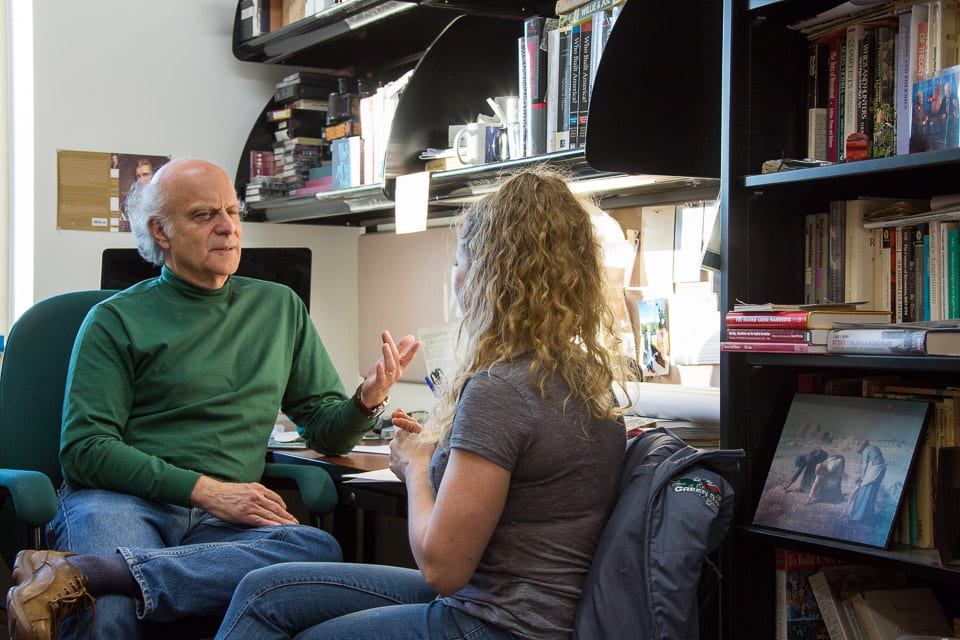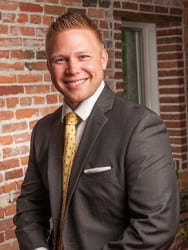Prelaw? At UW-Green Bay? Why, yes we do.

UW-Green Bay offers prelaw? The answer is a resounding “yes.” Ask Green Bay Attorney, Jason R. Just. He received his law degree from the University of Minnesota in May of this year, and credits his acceptance into its law program to the time he spent working towards his undergraduate degree from the University’s Democracy and Justice Studies (DJS) program.

Jason R. Just
“My professors did an exceptional job of challenging my thinking,” says Just. “They didn’t just lecture and hand out a test; their courses were difficult and challenging and made me think and engage with professors and fellow students. I was able to develop a type of critical thinking mindset that put me a step ahead of my peers in law school.”
Nationally-recognized professors, a close-knit setting that emphasizes open discussion and critical thinking combined with the program’s interdisciplinary approach give graduates a distinct advantage when entering law school. This interdisciplinary approach is what makes such a difference in the success of the program, says UW-Green Bay’s pre-law advisor, Assistant Professor Kristine Coulter.
“There are nine of us (professors) within this department, and we all come at it with different angles,” says Coulter. “We are political scientists, sociologists, historians and economists. Yet our underlying connection is caring about democracy and justice.”
Law schools throughout the country accept students in any major, based mostly on their GPA and Law School Admissions Test (LSAT). But Coulter explains that the coursework and instruction within the DJS program expose students to classes that they would have to take in law school, and assist students in deciding if law school is the right path.
“Our students develop a skill set that’s attractive to law schools…reading and writing skills, analytical and oral communication skills,” says Coulter. “We help our students pick the classes that will hone these skills, and at the same time, expose them to Constitutional Law, for example, to see if they like reading law briefs; or Law and Society to learn about the court system.”
Professor Harvey Kaye (Photo above with pre-law student Bree Mucha, DJS, Soldotna, Alaska) says strong community engagement by DJS faculty, and continual research and study of local and national issues, transfers back to the classroom, directly impacting DJS students.
“We’ve had more, and better students than we ever have before in the program,” says Kaye. “Department faculty are involved with many local organizations… and collaborate to provide numerous opportunities for internships.”
This community involvement, and continual research and study of local and national issues, transfers back to the classroom, directly impacting DJS students.
“When the university was founded 50-plus years ago, we were created to be the ‘innovative’ campus in the UW system,” states Kaye. “Although much has changed, we have sustained the idea that every student should have a program that is problem-focused and interdisciplinary, encouraging innovation, public debate, and the asking of questions.”
Many opportunities exist for those wishing to become an attorney. Besides the “traditional” courtroom lawyer, attorneys are in demand within large business settings and within the healthcare compliance system — both because of their law degree and their well-honed critical thinking skills.
“We’re going to challenge students and get them to think about and talk about things that are uncomfortable,” says Coulter, giving students the skills and critical thinking mindset to make them successful law students that become successful attorneys.
And more importantly, good citizens.
Written by freelance writer Kristin Bouchard. Feature photo by UW-Green Bay photographer Dan Moore.




